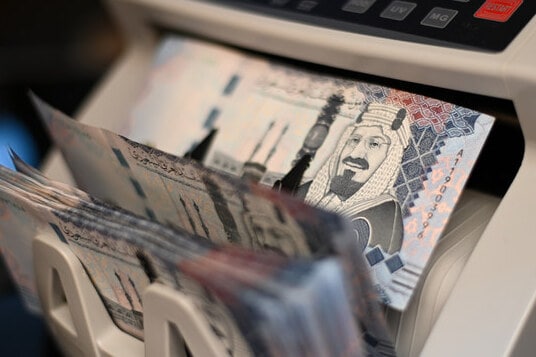Following the move by the US Federal Reserve, SAMA has increased interest rates.
Saudi Arabia’s central bank, known as SAMA, has increased its main interest rate by 25 basis points, in line with the US Federal Reserve, to counter inflation. The bank raised its repurchase agreement rate to 5.75 percent and the rate of reverse repurchase agreement to 5.25 percent. SAMA’s announcement was immediate, as most central banks in the Gulf Cooperation Council track the Fed’s policy rate moves, as their currencies are pegged to the US dollar.
Following SAMA’s announcement, the Central Bank of the UAE raised its base rate on overnight deposits by 25 bps to 5.15 percent, while the Central Bank of Bahrain lifted its key interest rates by 25 bps as well. Qatar Central Bank also increased its lending and deposit rates by 25 bps, in addition to hiking the repo rate by 25 bps to 5.70 percent.
Rising interest rates increase the cost of borrowing for consumers, leading to more expensive mortgage bills and loan repayments. This can lead to reduced spending on other items as people seek to cut outgoings. However, savers benefit from the interest rates rise, with money stored away gaining a greater return. Yet, with inflation across the globe still running hot, any extra interest gained by savings is lower than the rising cost of goods and services.
The Fed’s quarter-point interest rate hike follows months of larger increases, with a rise of 25 bps in February, 50 bps in December, and 75 bps in November, September, July, and June. Despite this, inflation remains a concern, prompting central banks worldwide to consider raising interest rates.
SAMA’s move comes as Saudi Arabia continues to experience inflationary pressures, particularly in the housing and food sectors. The country’s inflation rate rose to 6.1 percent in March, the highest level in more than a decade, driven by an increase in the value-added tax and higher fuel prices.
In response to rising inflation, SAMA has already taken a number of measures to stabilize prices, including introducing a price cap on some products and suspending certain import duties. In March, the bank also raised its reserve requirements for commercial banks for the first time in over a decade.
SAMA’s decision to raise interest rates is a balancing act between supporting economic growth and controlling inflation. Higher interest rates can slow economic growth by making borrowing more expensive, but they can also reduce inflationary pressures by increasing the cost of borrowing for businesses and consumers.
The move also follows recent government measures to stimulate economic growth, including a $20 billion stimulus package announced in March. The package includes spending on infrastructure projects, support for small and medium-sized enterprises, and a range of measures to boost the country’s tourism sector.
The Saudi government’s focus on economic growth and diversification has seen a range of reforms implemented in recent years, including the privatization of state assets and the introduction of new taxes and regulations. The government has also invested heavily in renewable energy and infrastructure projects, with the aim of reducing the country’s dependence on oil revenues.
In conclusion, SAMA’s decision to raise interest rates in line with the US Federal Reserve reflects concerns about rising inflation and is part of a broader effort to stabilize prices and support economic growth. While higher interest rates can slow economic growth, they can also help control inflation by increasing the cost of borrowing for businesses and consumers. The move comes as part of a wider effort by the Saudi government to diversify the economy and reduce its dependence on oil revenues.





